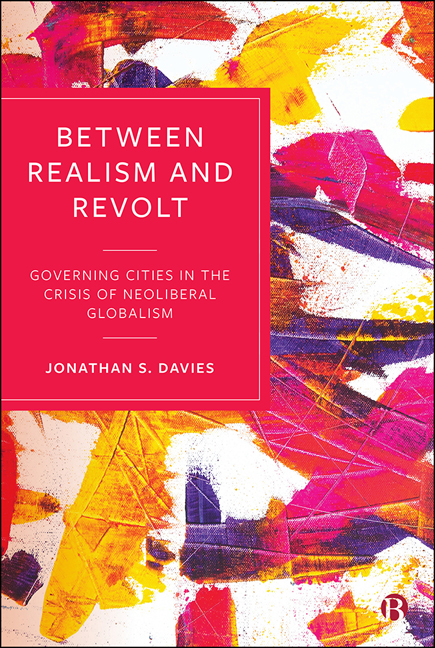Book contents
- Frontmatter
- Dedication
- Contents
- List of Tables
- Contributing Investigators
- Acknowledgements
- Preface
- Introduction
- 1 Studying Urban Political (Dis)Orders
- 2 Dynamics of Crisis, Neoliberalisation and Austerity
- 3 Austerity and State Rescaling
- 4 Consolidating Neoliberal Austerity Regimes
- 5 Regime Divergence and the Limits of Austere Neoliberalism
- 6 Resisting Austerity: Resonant Solidarities and Small Wins
- 7 The ‘Activity of Ruling Groups’: Containment, De-mobilisation and Fragmentation
- 8 Reading the Conjuncture: (Dis)Ordering Dynamics in the Crises of Neoliberal Globalism
- Afterword: Into the Pandemic
- Notes
- References
- Index
5 - Regime Divergence and the Limits of Austere Neoliberalism
Published online by Cambridge University Press: 05 January 2022
- Frontmatter
- Dedication
- Contents
- List of Tables
- Contributing Investigators
- Acknowledgements
- Preface
- Introduction
- 1 Studying Urban Political (Dis)Orders
- 2 Dynamics of Crisis, Neoliberalisation and Austerity
- 3 Austerity and State Rescaling
- 4 Consolidating Neoliberal Austerity Regimes
- 5 Regime Divergence and the Limits of Austere Neoliberalism
- 6 Resisting Austerity: Resonant Solidarities and Small Wins
- 7 The ‘Activity of Ruling Groups’: Containment, De-mobilisation and Fragmentation
- 8 Reading the Conjuncture: (Dis)Ordering Dynamics in the Crises of Neoliberal Globalism
- Afterword: Into the Pandemic
- Notes
- References
- Index
Summary
Introduction
The cities of Montréal, Nantes, Dandenong and Barcelona diverge in several ways from patterns of consolidation in austere neoliberalism discussed in Chapter 4. This chapter first discusses Montréal and Nantes, as two cases of established urban regimes dealing with policy failure and coming under strain from internal contradictions. The second part of the chapter explores Greater Dandenong and Barcelona, cities with very different political orientations and traditions, but where constructive regime building activities were occurring, respectively at a distance from and against austere neoliberalism.
Montréal: a development regime interregnum?
Chapters 2 and 3 contextualised the discussion of regime politics in Montréal, explaining the policy of rigueur at the provincial level, measures to centralise political and administrative control and the economic development dilemmas facing the city in recent decades. The government of Québec is a regime agenda setter, in the dual sense of controlling key public service budgets and, through austerity measures, downloading problems to other actors in the statutory and third sectors (Hamel and Autin, 2017). Hamel and Keil (2020) emphasise that rigueur was not only about cuts, but a state restructuring project amounting to a revanchist attack on the collaborative, democratic and deliberative traditions of the city.
Between 2013 and 2017, the city of Montréal was governed by an electoral coalition, Équipe Denis Coderre, which took a pragmatic stance towards Couillard's agenda. One the one hand, it made its own budget cuts and workforce reductions, but on the other hand accommodated the trade unions and community organisations by providing support, beneath the radar, to those resisting austerity (Hamel and Keil, 2018). Municipal managers and planners not typically sympathetic with austerity, were in an ambivalent position and imbricated in complex ‘mechanics of adaptation, resistance and cooperation within the turbulent context created by austerity’ (Hamel and Keil, 2020: 116). If the provincial government (despite its euphemistic language) had an ‘austerian idealist’ flavour, Hamel and Keil compare the city's disposition with the ‘austerian realism’ of Leicester, concluding that actors in the governance of Montréal were immersed in ‘a governmentality that rested on the partial acceptance of the ground rules of neoliberalism even by opposing actors’, though this was challenged vigorously by disputatious forces within civil society (Chapters 6 and 7).
- Type
- Chapter
- Information
- Between Realism and RevoltGoverning Cities in the Crisis of Neoliberal Globalism, pp. 113 - 134Publisher: Bristol University PressPrint publication year: 2021

